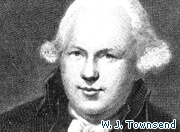The 200th anniversary of the death of the founder of the Sunday school movement was celebrated last week.
Robert Raikes, who was a newspaper publisher and philanthropist, died on 5 April 1811 and devoted the last thirty years of his life to setting up and running Sunday schools.
And within eighty years of his death, three out of every four children in England and Wales were attending Sunday school.
True happiness
Politician John Bright, who was born the year Raikes died and was the first to refer to England as the “Mother of Parliaments”, remarked on the impact the Sunday school movement had had on the nation.
“I don’t believe”, he said, “that all the statesmen in existence have tended so much to the greatness and true happiness, the security and glory of this country, as have the efforts of Sunday school teachers”.
Concerned
Robert Raikes was born in 1736 and at 21 he inherited the Gloucester Journal newspaper business from his father.
He had a strong social conscience and was concerned for prisoners in the city’s jail, many of whom relied on visitors for food.
But he also realised that one of the reasons the inmates had entered a life of crime was because they lacked a solid moral and spiritual education.
Sunday schools
Raikes started his first school in the early 1780s for boys only at first. It met on a Sunday, in order to give the boys something profitable to do on the day of rest.
From the outset, the boys were taught how to read and also taught from the catechism, the Church of England’s summary of Christian teaching in question and answer format.
Additional schools were soon set up and they opened their doors to girls as well.
John Wesley
The concept proved to be very popular and quickly caught on beyond the Gloucester area, with an army of volunteers keen to teach the children who flocked to them.
John Wesley, the founder of Methodism, noted, “I find these schools springing up everywhere I go”, and by 1786, an estimated 200,000 children were attending Sunday schools.
Within 80 years of Raikes’ death, 5.5 million children in England and Wales, around 75% of all children, attended Sunday school.
Greatly blessed
Although little is known of Robert Raikes’ personal beliefs, a biography written in the mid-nineteenth century casts some fascinating light upon them.
In his book The Rise and Progress of Sunday Schools, John Carroll Power refers to how Raikes saw the need for all children to be educated, decades before state education became compulsory in 1870.
Raikes’ biographer also records that, while Raikes was “strictly moral and upright in his character”, he did not at first “fully appreciate the spirituality” of his Sunday schools’ teachings.
Power records that Raikes did not come to personal faith until one day when he was “greatly blessed” in reading Isaiah 53 to a little girl in one of his classes, when he became aware of his own sinfulness and put his faith in Jesus Christ, of whom that chapter clearly speaks.

